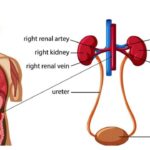STDs can be viral or bacterial infections which people contract in different ways. This brings us to the question: can you have an STD without intercourse? And the answer is yes. On this note, sex education is important, as not all STDs are from penetration sex. Now let’s see how this is possible.
Sex education is not just for “teenagers“; it’s about equipping you with the knowledge to make good decisions regarding your sexual well-being. To be safe, you must know more about sexually transmitted diseases (STDs) and how they spread.
Although, some still believe that only “promiscuous” people can have an STD, unfortunately, that is not correct. This ignorance can expose them to the infection. STDs do not choose their victims; anyone can contract the disease, both old and young.
Can you have an STD without intercourse?
Yes, you can have an STD without having intercourse. This may be through direct physical contact such as touching, kissing, or sharing of personal items. People should also know that they do not have to engage in sexual activities to get an STD. It is important to protect yourself, even if you don’t have a boyfriend or girlfriend.
How STDs can be contracted without intercourse
- Skin-to-skin contact
One of the ways one can have an STD without intercourse is through body contact. For instance, when kissing or touching a person with an STD, you can contract the infection. This happens when the fluids come into contact with the infected place.
If you have a sore on your hand and then you rub it on the genital area of a person with an STD, then there are high chance that you are going to contract an STD. Couples should be conscious of their partner’s sexual health at all times.
- Sharing needles
Whatever the reason may be, you should never share items like syringes or needles. It is very easy to pass the virus if one uses a needle used by another person who has an STD for a drug or any medical purpose. This includes diseases such as Human Immunodeficiency Virus (HIV), Hepatitis B, and Hepatitis C.
STDs can also be contracted through sharing of other items like pipes or spoons used in preparing drugs. These items can act as a source of transmission of infectious diseases and quickly transmit them from one person to another.
However, if one needs to use needles for medical purposes, the instruments/equipments have to be sterilized and properly disposed after use.
- Mother to child
Regarding the possibility of getting an STD without intercourse, another pathway is from mother to child. This can occur during pregnancy, childbirth, or even while breastfeeding the baby.
Some STDs, like herpes, HIV, and syphilis, can be transmitted from the mother to the baby through the placenta during pregnancy. The baby may also get infected with STDs during delivery if the mother has an active STD.
Breastfeeding can also pass the STDs to the baby in the process of feeding him or her. Pregnant women need to attend antinatal classes frequently to enable a doctor monitor the pregnancy and also undergo tests for STDs or other viral infections.
So, if the STD result tests positive, the expecting mom will start treatment immediately to prevent infecting the unborn child.
- Oral sex
Another way to contract an STD without sexual intercourse is through oral sex. It is possible because the mouth and genitals can make contact with infected fluids. Herpes, gonorrhea, chlamydia, and HIV are some of the STDs that a person can get through oral sex.
During oral sex, the mouth is in direct contact with genital fluids which may lead to STD transmission. Then how can one avoid it? Condoms or dental dams are barriers that can help reduce the chance of it occurring.
- Blood transfusions
When a blood is not properly screened before transfusion and the donor has an STD, the recipient can contract the infection. Although many hospitals screen blood before depositing it in their blood bank, however, there are times when there is a shortage of blood in the blood bank, hence the need for a blood donor.
The worst of it is that even if the blood has been screened, the test result may come out negative, as it takes time for some to show fully. In other words, a patient who needs a blood transfusion should always be observant and ask questions concerning the blood screening process.
- Sharing personal items
Body fluids can also spread STDs, and personal items such as razors or toothbrushes, for example, can transmit the diseases. So, before using somebody else’s items, you should think of the possibility of contracting a viral or bacterial disease.
Herpes, HIV, and hepatitis, among other STDs, can be transmitted easily using shared items. It only requires a small scratch or any form of skin injury for the virus to penetrate into your bloodstream. Do not share personal belongings, and always wash your hands or disinfect your hands to avoid any risks.
STDs one can get without intercourse
While some STDs are contracted through sexual intercourse, there are others without penetration sex. Here are the types of STDs that can be acquired without intercourse:
Herpes
Herpes is a viral disease that can be transmitted through physical contact. This involves kissing, using the same fork or spoon, and touching an infected part of the body. Herpes symptoms include painful sores around the mouth or genitals.
HPV
HPV, or human papillomavirus, is yet another STD that a person can get through skin-to-skin contact. These may lead to genital warts or cervical cancer in the female. In addition, HPV can also be passed through shared objects that have the virus, like using the same towels or clothes.
Hepatitis
Hepatitis is an infection with the hepatitis viruses that can be contracted through contact with infected blood or other body fluids. Hepatitis can lead to inflammation in the liver and might result in liver diseases or even liver failure.
Hepatitis can be contracted by sharing needles or any other drug-related items, getting a tattoo with a non-sterile needle, or touching blood from a contaminated person.
Pubic Lice
Crabs are small parasite organisms that survive on the human body, specifically the hair around genital areas.Transmission of the pubic lice can be through direct body contact, wearing affected clothes, or using the affected beds or other materials. Pubic lice can cause itching and irritation in the affected areas of the body.
Prevention Tips
There are ways how to avoid contracting STDs without having intercourse: Here are five types of prevention methods you can use:
1. Use Protection
Even if you are not having penetration sex, you should use protection, of course, during any kind of sex. Condoms, dental dams, and other barriers can help minimize the risk of transmission.
2. Go for medical test regularly
Basically, one should go for an STD test regularly, even if not sexually active. Skin-to-skin contact or ANY sexual contact can pass on certain STDs, and it is good to know your status, and if positive, it is better to start the treatment immediately.
3. Communicate with your partner
Don’t shy away from it. If you test positive for STDs, it is important that you discuss it without your partner. It is wickedness to conceal a health status.
However, it may not end well, a lot of people still believe that STDS is a deadly disease. If you have any doubt that he or she might as well have the infection, the only way is to go for an STD test, alone or together.
4. Practice Safe Sex
So even if you are not having penetration sex, there are ways you can have safe sex. So, to avoid contracting an STD, you must practice safe oral sex like using condoms or dental dams, washing hands regularly before and after having any form of sexual contact.
5. Limit Your Number of Partners
Having multiple sexual partners is not healthy; rather, it exposes one to diseases like STDs. A person with many sexual partners is likely to get an STD, and the best advice is to reduce it.
Read also: Do STDs Go Away?
If you must be in an intimate relationship, it is good that you know your health status and that of your partner.
Wondering if you can have an STD without intercourse? The answer is yes. STDs can spread through skin contact and the sharing of needles.
Now you know that you can get an STD even if you do not have intercourse. Herpes, HPV, and syphilis are some of the STDS that do not require penetration to contract STDS.
Abstinence does mean a person is safe because some sexually transmitted diseases are bacterial infections, which antibiotics can cure. So, it is vital that everyone goes for regular STD testing and practice safe sex.
If you have any questions, you should not hesitate to consult a healthcare provider. In essence, take care of your health.
I hope this article serves your curiosity. For your questions and comments, use any of the social media buttons below.



